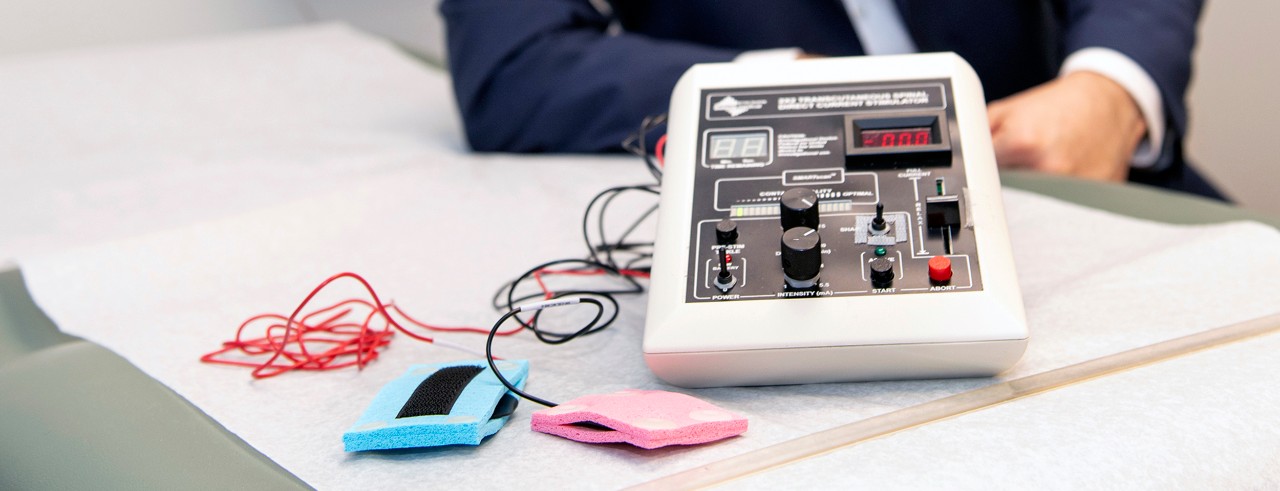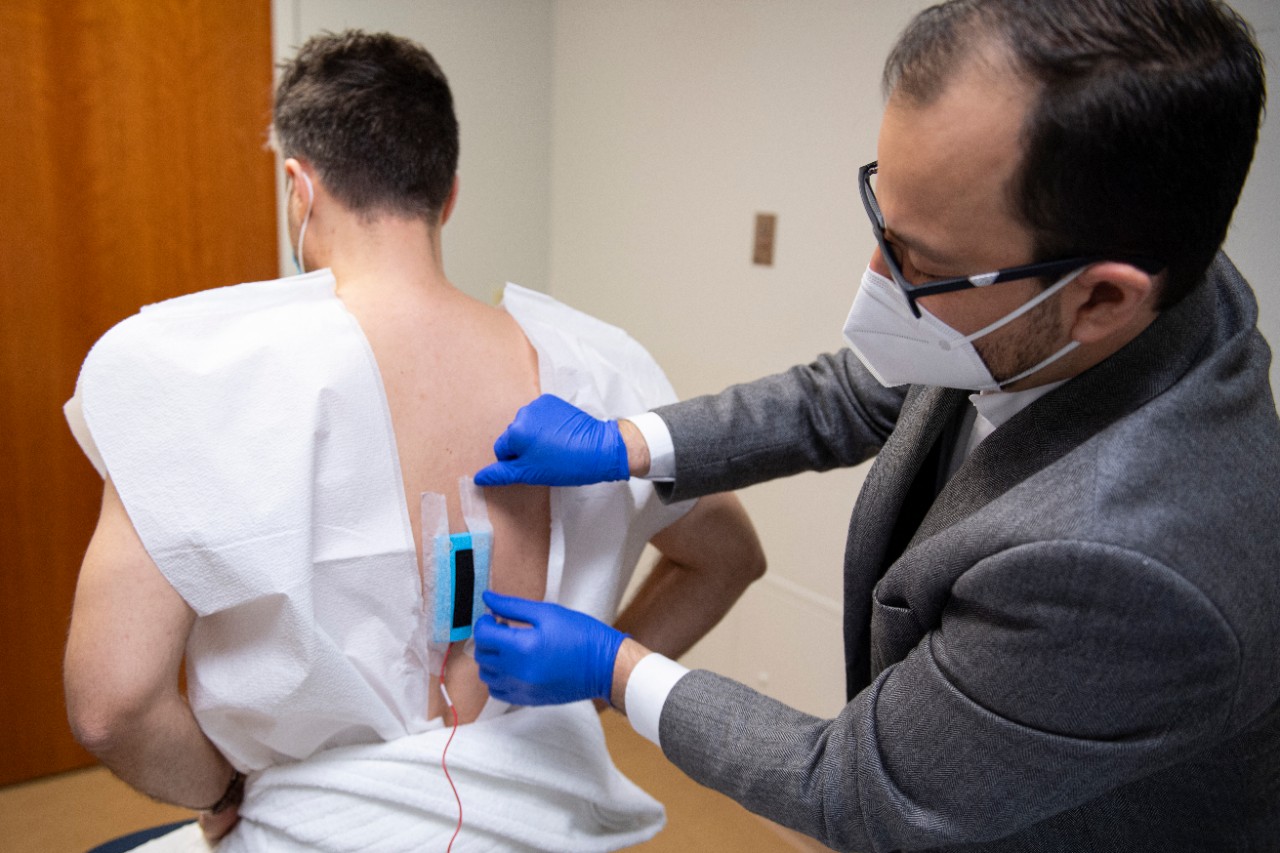
Cincinnati Edition: A new way to treat depression
UC researcher studies whether electrical stimulation of the spinal cord helps treat depression
A researcher at the University of Cincinnati is studying whether electrical stimulation of the spinal cord can be helpful in treating certain psychiatric conditions, like depression. Francisco Romo-Nava, MD, PhD, calls his research "neuroscience of the body in psychiatric disorders."

Francisco Romo-Nava, MD, PhD, a University of Cincinnati researcher, applies the electrodes to a patient. Photo/Colleen Kelley
"We think that a relatively small electrical current applied through the skin, which can barely be felt by the patient and will not hurt them, will moderate the brain-body communication neural pathways in the spinal cord and will impact certain regions of the brain," Romo-Nava, assistant professor in the Department of Psychiatry and Behavioral Neurosciences at UC, associate chief research officer for the Research Institute at the Lindner Center of HOPE and a UC Health physician scientist, says.
Listen to the full Cincinnati Edition segment from WVXU.
This news was also featured in a WVXU, 91.7-FM report.
Featured photo of device used in the study by Colleen Kelley.
Impact Lives Here
The University of Cincinnati is leading public urban universities into a new era of innovation and impact. Our faculty, staff and students are saving lives, changing outcomes and bending the future in our city's direction. Next Lives Here.
Stay up on all UC's COVID-19 stories, or take a UC virtual visit and begin picturing yourself at an institution that inspires incredible stories.
Related Stories
2024 Daniel Drake Medals to be awarded April 27
April 24, 2024
The UC College of Medicine will award three people with 2024 Daniel Drake Medals April 27.
Local 12: Head injury survivor, doctor share importance of...
April 23, 2024
Local 12 spoke with patient Shane Shapiro and the University of Cincinnati's Laura Ngwenya about the importance of wearing a helmet following Shapiro's traumatic brain injury and recovery.
WVXU: Why is part of Green Township called Dent?
April 23, 2024
UC College of Arts and Sciences professor tells WVXU that Ohio's glacial past might explain how Dent got its name.
